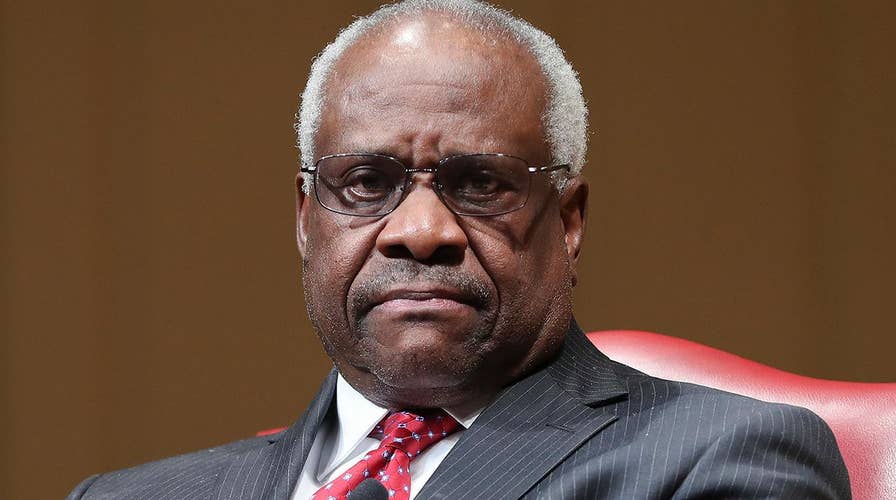Clarence Thomas discusses modern victimhood culture
U.S. Supreme Court Justice Clarence Thomas says at some point we're going to be 'fatigued with everyone being a victim' in conversation with Judge of the United States Court of Appeals for the Armed Forces Gregory E. Maggs at Library of Congress in Washington, D.C.
Supreme Court Justice Clarence Thomas said in a rare public appearance Thursday he’s exhausted with how everyone seems to consider themselves a victim these days.
“At some point, we’re going to be fatigued with everybody being the victim,” Thomas, the second African American to serve on the Supreme Court, said during an on-stage interview at the Library of Congress in Washington.
Thomas, a conservative appointed to the bench in 1990 by President George H.W. Bush, recalled recently being with a young black woman in Kansas who told him, “I’m really tired of having to play the role of being black. I just want to go to school.”
“I just get worn down,” Thomas said.
The justice said his grandfather had a tough life but never considered himself a victim.
ANOTHER FEDERAL APPEALS COURT STRIKES DOWN TRUMP 'TRAVEL BAN'
“When I was a kid, there were tons of people who were in really bad circumstances,” Thomas said. “My grandfather would not let us wallow in that.”
Thomas added: “He’s my hero. He’s the single greatest human being I’ve ever met. With nine months of education. But he never saw himself as a victim.”
The Daily Caller first drew attention to Thomas’ remarks on victimhood.
During his remarks, Thomas – who faced a bruising confirmation battle when appointed to the high court – lamented the confirmation process for judges, saying it may cause good people to forgo serving. Thomas’s nomination was nearly derailed after facing accusations from a former assistant, Anita Hill, that he sexually harassed her. Thomas denied the allegations.
“I don’t think the process is what it ought to be,” Thomas said. “I think that these are serious jobs, and they should be serious. I don’t think they should become spectacles.”
Thomas said he was confirmed five times in ten years for judicial roles and “it got increasingly worse.”
“This is not the Roman Colosseum,” he said. “We’re not gladiators. And I think we’re going to lose some of our best people who choose not to go through the ordeal. They don’t want to have to fight the lion in order to be a judge or to be in government. And I think it’s our own fault for allowing this to happen.”













































